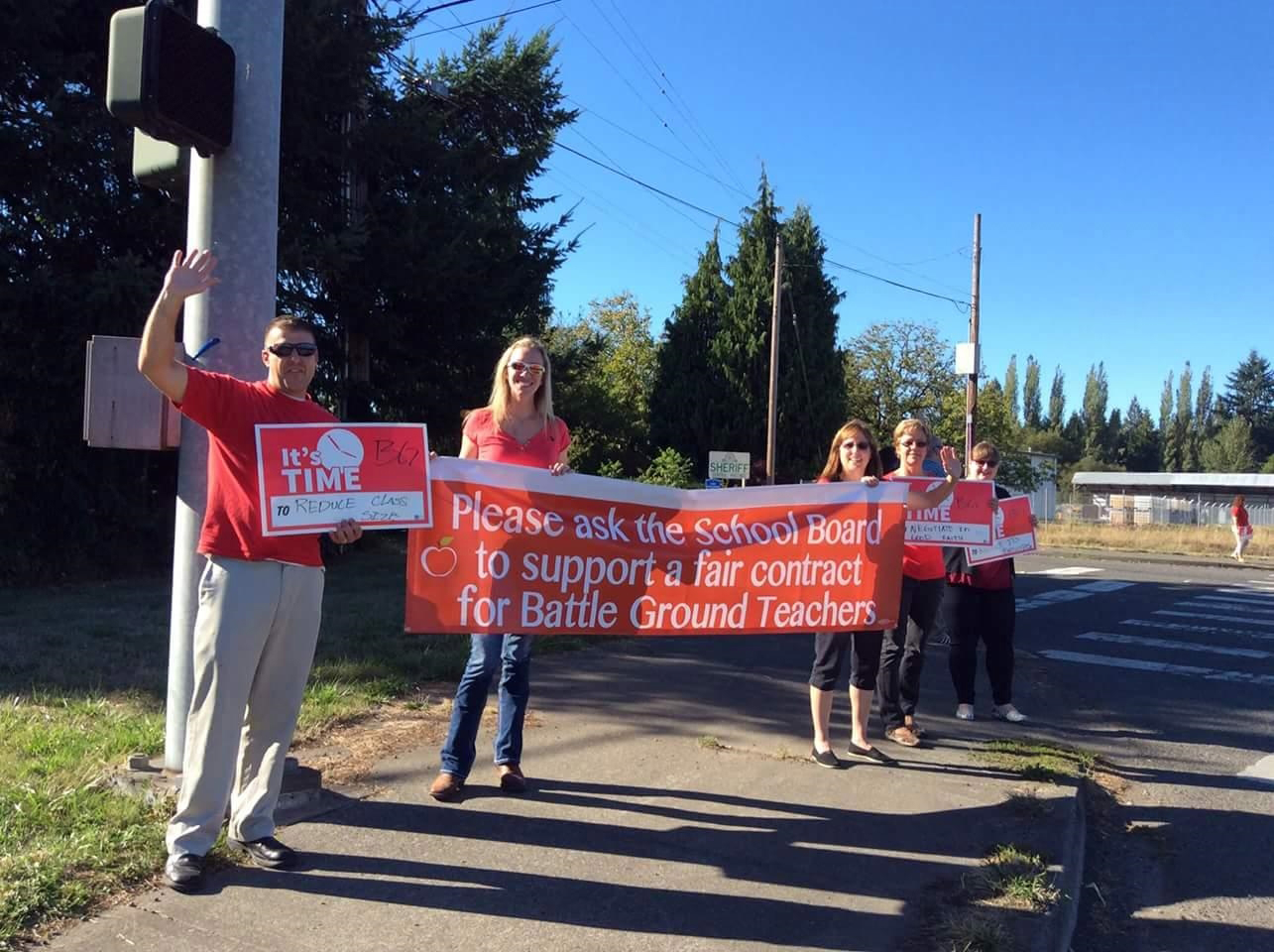The unresolved teachers’ contract in Battle Ground is the subject of two meetings this week — one public and one private.
On Tuesday night, the Battle Ground Education Association is hosting a community budget forum featuring a Washington Education Association representative.
On Friday, the teachers union and the school district will meet in the next collective bargaining session with a Public Employment Relations Commission mediator, their fifth mediated bargaining session. The school district and the teachers union have been negotiating the contract since last spring. The previous contract expired Aug. 31.
Among the issues dividing the two sides is a proposal for increasing the amount of money teachers receive for work outside the classroom.
The district has offered to increase the number of days of “Time, Responsibility and Incentive” pay from 14 to 22 days over a two-year period for general education teachers, or about 615 of the district’s more than 800 certificated teaching staffers. The increase would be smaller for the other certificated staffers, including special education teachers, librarians and registered nurses.
The union wants the increase to apply to all certificated staffers, and for the increase to be implemented in one year rather than spread over two.
“The WEA representative believes there is money to honor the BGEA proposal,” said union president Linda Peterson. “There is no doubt Battle Ground has worked with a tight budget for so many years. We have fallen so far behind compared to neighboring districts.”
The union also proposed that a counselor be added to each primary school. Currently, primary schools share psychologists, but they do not have counselors.
Adding a counselor in the primary schools will benefit the kids and the teachers, Peterson said.
“The primary teachers have to play a counselor role they are not qualified for,” she said. “We added middle school counselors, and it made a big difference.”
In a written statement on the district’s website, Superintendent Mark Hottowe said adding counselors would require cuts in other areas to keep the budget in balance. He also wrote that the district has more school psychologists per student than all surrounding districts.
“The district has limited finances and has to make difficult decisions on how to provide additional compensation for staff while still funding other departments such as facilities, technology and curriculum,” Hottowe wrote.
District administrators have worked to pull the district out of the financial mire of multiple levy failures in the past. Compared to other districts, Battle Ground’s fund balance — its reserve in the bank — is very low, only about $3 million.
“It’s a larger balance than we’ve had in the past,” said Peterson. “The teachers have been patient. Battle Ground doesn’t have the money to compensate like Evergreen (district). We didn’t ask to be comparable to Evergreen or Vancouver. We’re just asking for a little more.”




